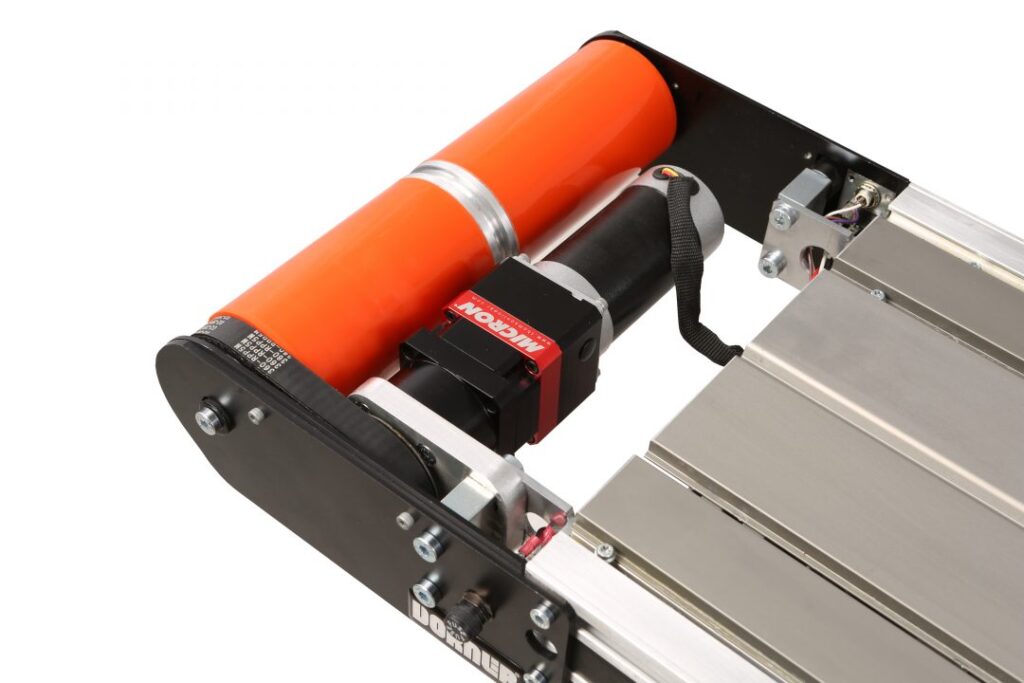What are Some of the Benefits of Using an Automatic Conveyor for Industrial Automation?

Using automatic conveyors for industrial automation offers a wide range of benefits that significantly enhance operational efficiency, productivity, and overall business performance. Some of the key advantages include:
- Increased Efficiency: Automatic conveyors streamline material movement, reducing the need for manual handling and minimizing delays. They ensure consistent and reliable transportation, leading to smoother production processes and faster throughput.
- Labor Savings: By automating material handling, automatic conveyors reduce the reliance on manual labor for tasks like loading, unloading, and transferring materials. This not only reduces labor costs but also frees up employees for more skilled and value-added tasks.
- Higher Throughput: Conveyors enable continuous and controlled material flow, allowing for higher production rates and increased output. This is particularly important in industries with high demand and time-sensitive processes.
- Consistent Product Quality: Automatic conveyors help maintain a consistent pace of production and prevent human errors, leading to more consistent product quality and reduced defects.
- Reduced Risk of Injuries: By minimizing manual lifting and carrying of heavy items, automatic conveyors contribute to a safer work environment. This reduces the risk of workplace injuries and related costs.
- Optimized Space Utilization: Conveyor systems are designed to maximize the efficient use of available space. Vertical conveyors, spirals, and compact designs help utilize vertical space and optimize layout planning.
- Flexibility and Customization: Modern conveyor systems can be tailored to specific needs, accommodating different types of materials, product sizes, and process requirements. This flexibility allows for easy adaptation to changing production demands.
- Integration with Other Systems: Automatic conveyors can be seamlessly integrated with other automated systems, such as robotic arms, sorting machines, and packaging equipment. This integration enhances the overall automation capabilities of the facility.
- Improved Traceability: Conveyor systems can be equipped with sensors and tracking mechanisms to monitor the movement of materials. This enhances traceability, making it easier to track the progress of products through various stages of production.
- Enhanced Inventory Management: Automated conveyors enable better control over the flow of materials, which leads to improved inventory management. This reduces the risk of overstocking or stockouts and improves overall supply chain efficiency.
- Energy Efficiency: Many modern conveyor systems are designed with energy-efficient components and technologies. They can incorporate features such as variable-speed drives and automated shutdown when not in use, contributing to energy savings.
- 24/7 Operations: Automatic conveyors allow for continuous operation, even outside regular working hours. This continuous operation can lead to higher overall production output and reduced downtime.
- Reduction in Material Damage: Conveyors designed with gentle handling mechanisms can significantly reduce the risk of product damage during transport, ensuring that products reach their destination in optimal condition.
- Cost Savings: While there is an upfront investment in setting up automated conveyor systems, the long-term cost savings from improved efficiency, reduced labor costs, and minimized errors often outweigh the initial investment.
- Scalability: Automated conveyor systems can be easily scaled up or modified to accommodate changes in production volume or product lines, making them adaptable to business growth.
In summary, automatic conveyors play a pivotal role in modern industrial automation by increasing efficiency, reducing labor costs, improving safety, and contributing to higher-quality products. They are a fundamental element in the pursuit of lean manufacturing and optimized supply chain operations.